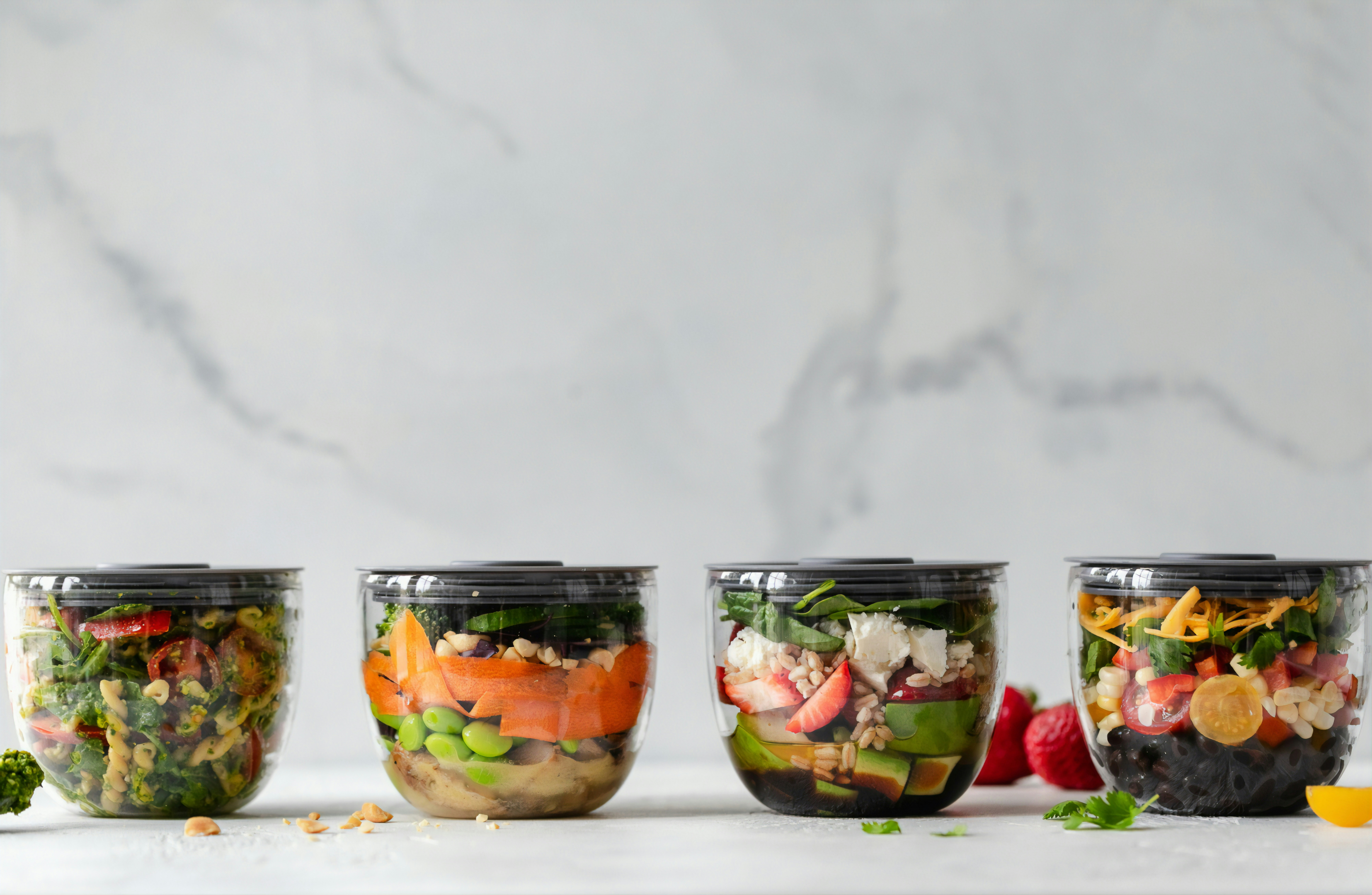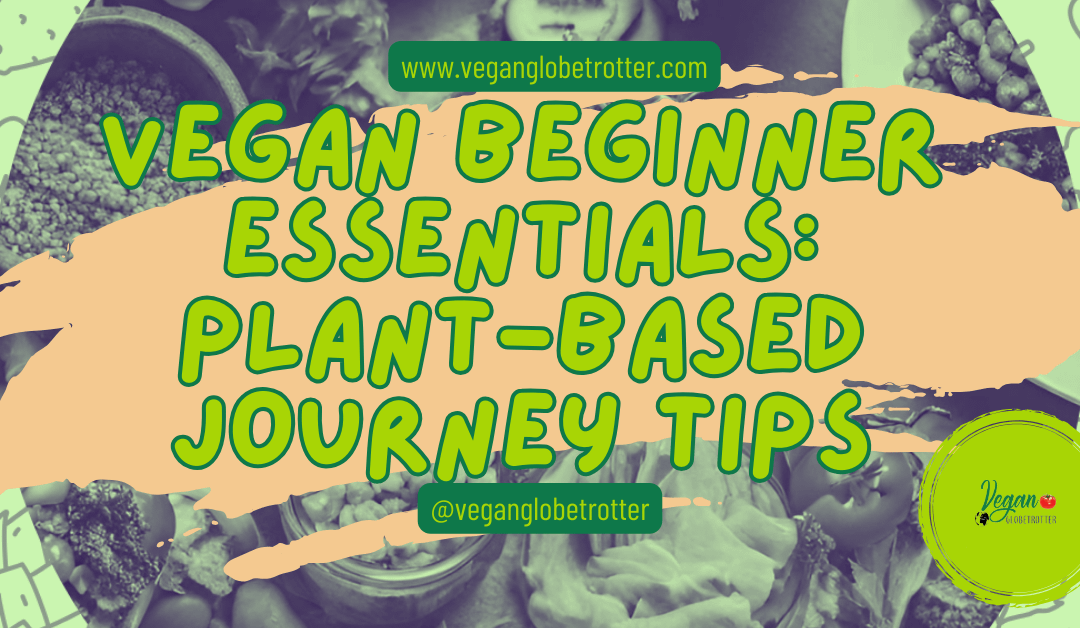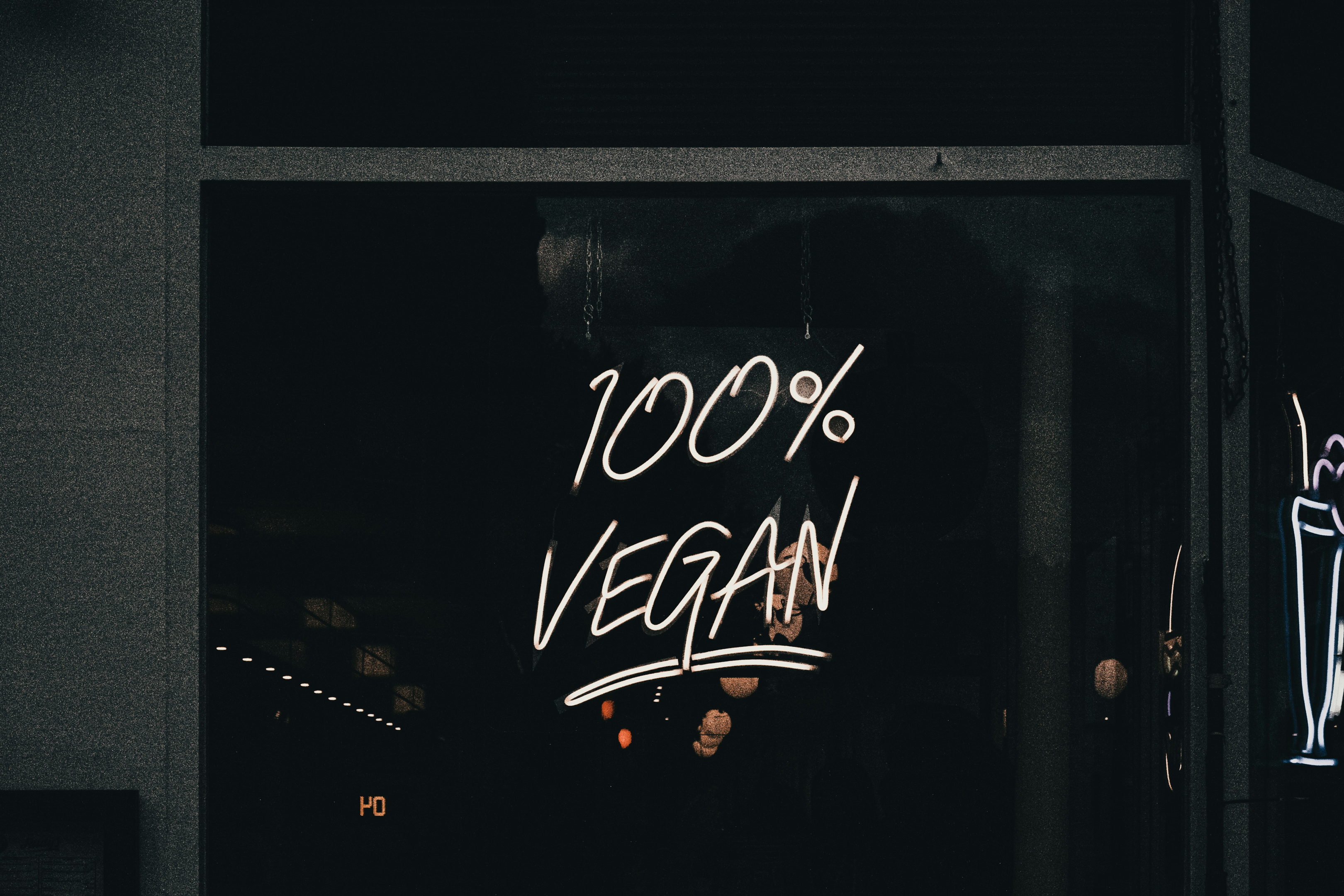Vegan Globetrotter is supported by our audience. When you purchase through one of our links, we may earn a small affiliate commission. As an Amazon Associate I earn from qualifying purchases. Your cost is not affected.
==================
Embarking on a vegan lifestyle as a vegan beginner can be a transformative experience that benefits your health, the environment, and animal welfare. It involves a conscious decision to eschew all animal products from one’s diet, which often leads to exploring a variety of new and nutritious plant-based foods. Though it may seem daunting at first, adopting a vegan diet can be simplified with a well-structured plan and knowledge of essential nutrients.
Vegan Beginner: Navigating the Transition to a Fulfilling Vegan Journey
Navigating the transition to a vegan diet involves understanding the importance of balanced nutrition, discovering new food options, and learning how to prepare meals that are both satisfying and healthy. Whether it’s finding substitutes for beloved non-vegan items or learning how to manage social situations as a vegan, there are strategies to address common challenges. Access to resources and continuous learning will help in adapting to this lifestyle change more smoothly, enabling a fulfilling vegan journey.

Key Takeaways
- Transitioning to a vegan lifestyle requires careful planning and education.
- Balanced nutrition and meal planning are crucial for a healthy vegan diet.
- Continuous adaptation is key to a successful and enjoyable vegan experience.
Defining Veganism for Vegan Beginners
Veganism involves choosing alternatives that avoid animal products and byproducts. This means that an individual adheres to a plant-based diet that excludes meat, dairy, eggs, and honey, as well as avoiding non-food products made from animals such as leather and wool.
Benefits of Veganism
The benefits of adopting a vegan lifestyle can be vast. Nutritionally, plant-based diets are rich in fiber, antioxidants, and essential nutrients. Research has linked vegan diets to a lower risk of heart disease, high blood pressure, type 2 diabetes, and certain cancers.
Ethical, Environmental, and Health Considerations
Ethically, veganism stands against animal exploitation and cruelty. Environmentally, it is seen as a sustainable choice that significantly reduces one’s carbon footprint. Health considerations include obtaining all necessary nutrients through well-planned, balanced vegan meals that are mindful of protein, iron, calcium, and vitamin B12 intake.

Setting Realistic Goals
Setting achievable goals is crucial for a successful transition to a vegan diet. Beginners should focus on learning about plant-based nutrition and gradually increasing the diversity of vegan foods in their diet. For instance, aiming to incorporate a new vegan protein source every week can keep the diet nutritionally balanced without becoming overwhelming.
Transitioning Gradually
A sudden switch to veganism can be challenging for some. It’s often more sustainable to transition gradually. They could start by introducing one fully vegan meal a day, then progress to a vegan day per week, and slowly increase from there. Resources like The Vegan Society provide practical tips on making this shift in a manageable way.
Essential Nutrients and Supplements
Transitioning to a vegan diet requires careful planning to ensure one gets all the essential nutrients and supplements that might otherwise be plentiful in an omnivorous diet.

Protein Sources
Vegan diets can provide adequate protein if a variety of plant-based sources are included. Legumes like lentils, chickpeas, and black beans, are excellent and rich in protein. Additionally, tofu, tempeh, and seitan are versatile protein-rich options that can be used in a myriad of recipes. Eating a variety of these foods will ensure that one’s protein needs are met.
Iron and Calcium
Iron is crucial for producing red blood cells and can be found in plant foods like spinach, lentils, and fortified cereals. However, plant-based iron is less readily absorbed by the body, so consuming vitamin C-rich foods like oranges or tomatoes alongside iron-rich foods can enhance absorption. Calcium, important for bone health, is abundant in fortified plant milks, kale, and broccoli. Complementing these with other fortified foods and sunlight exposure for vitamin D will aid in its absorption.

Photo by Diana Polekhina on Unsplash
Vitamin B12
Vitamin B12 is not naturally found in plants, so vegans should seek fortified foods or a B12 supplement. This vitamin is vital for nerve function and the creation of DNA and red blood cells. Consistent intake of B12 is important as deficiencies can lead to serious neurological implications.
Omega-3 Fatty Acids
Omega-3 fatty acids support heart and brain health. While often associated with fish oil, there are vegan sources like flaxseeds, chia seeds, and walnuts. These should be daily staples in a vegan diet. For those seeking a direct supplement, algae-based omega-3 supplements are a fish-free option that provides EPA and DHA, the types of omega-3s readily utilized by the body.
Vitamin D
Vitamin D plays a vital role in bone health and immune function. While our bodies can produce vitamin D when exposed to sunlight, it’s challenging to rely solely on sunlight, especially in certain climates or during winter. Vegans can obtain vitamin D from fortified plant milk, cereals, and orange juice. Additionally, vitamin D supplements, derived from lichen, offer a reliable source for those with limited sun exposure.
Zinc
Zinc is essential for immune function, wound healing, and DNA synthesis. Plant-based sources of zinc include legumes, nuts, seeds, and whole grains. However, the absorption of zinc from plant sources can be influenced by factors like phytates found in grains and legumes. To enhance zinc absorption, soaking, fermenting, or sprouting these foods can be beneficial. If meeting zinc needs through diet alone is challenging, a zinc supplement may be considered under the guidance of a healthcare professional.
Vegan Grocery Shopping for Vegan Beginners
Embarking on a vegan lifestyle as a vegan beginner necessitates a mindful approach to grocery shopping. Successful navigation of store aisles hinges on understanding product labels, knowing which staples to stock up on, and selecting the freshest seasonal and local produce.

Reading Labels
The adept vegan shopper always scrutinizes labels to ensure that products are free from animal-derived ingredients. They look for common non-vegan additives like gelatin, casein, and certain e-numbers. Certification labels such as “Certified Vegan” can also be a quick indicator of suitable products.
Vegan Staple Foods
Vegan staples constitute the backbone of a plant-based pantry. Legumes, such as lentils, chickpeas, and black beans, offer a hearty protein base. Whole grains and seeds—brown rice, quinoa, flaxseeds—are essential for their versatility. A range of nuts provides healthy fats, and fortified plant milks cater to calcium and vitamin D needs.
Seasonal and Local Produce
They benefit from shopping for seasonal and local produce not just in flavor but also in nutritional content. Such produce is more likely to be at its peak both in terms of taste and nutrients. In addition, supporting local farmers can also have a beneficial impact on the environment. By focusing on these key elements, readers can confidently create a vegan grocery shopping approach that is health-conscious and environmentally considerate.
Balancing Your Meals
Balanced meals should include a variety of nutrients such as proteins, carbohydrates, fats, vitamins, and minerals. It is important to include protein-rich foods like legumes, complex carbohydrates such as whole grains, healthy fats from sources like avocados, and a rainbow of fruits and vegetables for a broad array of vitamins and minerals.
Simple and Quick Recipes
One does not need to be a chef to enjoy a plant-based diet. Opt for simple recipes with few ingredients that can be made in under 30 minutes. For example, a quick stir-fry or a bean salad are great go-to options. Utilize online resources for beginners’ guides to plant-based eating to find straightforward, nutritious recipes.
Batch Cooking and Meal Prepping
They can save time and reduce stress by batch cooking and meal prepping. Cook large portions of staples like rice, quinoa, or beans at the start of the week. Preparing meals in batches ensures that they have healthy options ready to eat, which can prevent last-minute unhealthful choices. Use a meal planning template to stay organized and ensure variety throughout the week.
Choosing Vegan-Friendly Restaurants
- Research Before Dining: Utilize online resources to locate restaurants with vegan options. For example, platforms like HappyCow are invaluable for finding vegan and vegan-friendly eateries.
- Menu Exploration: Check the restaurant’s online menu to ensure they offer meals that align with vegan diets. Some establishments may not advertise as vegan but have adaptable menu items.
Communicating Dietary Preferences
- Advance Notice: When possible, contact the restaurant ahead of time to inform them of your dietary needs. They may be able to prepare something special or guide you through the menu.
- Clear Communication: During social situations, it is beneficial to communicate one’s dietary preferences straightforwardly. This can be achieved directly or through arranging to bring a vegan-friendly dish to share.
Cravings and How to Handle Them
When individuals switch to a vegan diet, they may find themselves missing certain flavors and textures from their previous eating habits. Combating cravings is a critical step. For example, legumes, beans, and lentils can satiate the desire for hearty, protein-rich meals. Those yearning for the umami taste often found in meat can turn to foods like mushrooms or soy products such as tofu, tempeh, or seitan. It is important to identify the feelings behind cravings and seek out vegan alternatives that provide similar sensory experiences.
- Protein-rich substitutes: To replace traditional meat products, options like beans, tofu, and seitan are available.
- Cheese alternatives: Nutritional yeast or vegan cheeses can provide the familiar cheesy flavor.
Getting Fit on a Vegan Diet as a Vegan Beginner
When you’re living a vegan lifestyle, being active can make it even better. Being active doesn’t have to be complicated, and it can help you feel good both physically and mentally. Here’s some easy info to help you stay fit as a vegan:

How Exercise Works with Being Vegan
Being vegan and active go hand in hand. Plant-based diets give you the energy and nutrients you need for different types of exercises, like running, lifting weights, or stretching.
Eating Right for Workouts
Before you exercise, eat foods like fruits and whole grains for energy. Afterward, go for protein-rich foods like lentils and beans to help your muscles recover. Also, make sure to drink enough water—it’s super important!
Protein Power for Active Vegans
Protein is important for active folks. Get it from foods like beans, tofu, and vegan protein shakes. Adjust how much protein you eat based on how much you work out and your fitness goals.
A Simple Workout Plan
You don’t need a fancy plan. Mix it up with activities you enjoy, like running, doing push-ups, or trying yoga. Just move your body regularly to stay healthy.
Finding Support and Community as a Vegan Beginner

Photo by Hannah Busing on Unsplash
The importance of finding a vegan-friendly community cannot be overstated. Supportive friends, family, or online groups can offer guidance, share experiences, and provide emotional encouragement. For those seeking practical advice and community support, numerous online platforms and local groups can serve as valuable resources. Websites such as Challenge 22 offer structured guidance and community engagement to assist beginners in their vegan journey.
- Online forums and groups: Places where tips are exchanged and questions are answered.
- Local meetups and potlucks: Opportunities to connect and enjoy shared dining experiences.
By acknowledging and understanding the common challenges faced when adopting a vegan lifestyle, one can better prepare and find effective solutions to maintain their new dietary choices.
Continual Learning and Adaptation for Vegan Beginners

Photo by Firmbee.com on Unsplash
When transitioning to a vegan lifestyle, individuals often discover that it is a process of continual learning and adaptation. The journey typically requires a degree of flexibility and a willingness to explore new dietary options.
Education for Vegan Beginners
They should immerse themselves in vegan literature and trusted resources to stay informed about nutritional needs and the variety of food available.
Nutritional Balance
It is crucial to learn about macronutrients and micronutrients to ensure a well-rounded diet.
- Protein sources include legumes, nuts, and seeds.
- Calcium can be obtained from fortified plant milk and dark leafy greens.
As beginners navigate through different stages of their vegan journey, they discover the importance of adapting their meals to fit their nutritional needs and lifestyle. Meal planning becomes an invaluable skill, helping to maintain a diverse and satisfying diet.
Meal Prepping for Vegan Beginners

Beginners can start by prepping simple vegan meals to save time and ensure they meet their dietary goals.
Finally, social adaptation plays a key role. When dining out, individuals should research vegan-friendly restaurants or menu items ahead of time. They may also find value in connecting with local or online vegan communities for support and inspiration.
Table 1: Essential Nutrients and Their Plant-based Sources
Nutrient Plant-based Sources Protein Legumes, nuts, soy products Calcium Fortified plant milk, tofu Iron Lentils, chickpeas, spinach
Note
Meal planning and nutritional balance are personal and should be tailored to individual health and lifestyle requirements.
Vegan Beginner: Wrapping Up Your Journey

Embracing a vegan lifestyle involves a conscious decision to eschew animal products, prioritizing health, ethical, and environmental considerations.
From understanding the importance of balanced nutrition to navigating social situations and managing cravings, this journey requires dedication and continuous learning.
By setting realistic goals, gradually transitioning, and prioritizing essential nutrients, beginners can thrive on a plant-based diet. Remember, with support from communities and resources, your vegan journey can be both fulfilling and rewarding.
Ready to take the next step? Join our community and embark on your vegan adventure today!
Frequently Asked Questions for Vegan Beginners
 Photo by Towfiqu barbhuiya on Unsplash
Photo by Towfiqu barbhuiya on Unsplash
The following subsections address common inquiries that vegan beginners have when embarking on a vegan lifestyle, providing clarity on dietary inclusions, the variety of plant-based diets, and practical tips for transitioning.
What Should I Include in My Diet When Starting as a Vegan Beginner?
A balanced vegan diet should include a variety of fruits, vegetables, grains, proteins like tofu, legumes, and lentils, and healthy fats such as avocados, nuts, and seeds. It’s crucial to ensure adequate intake of nutrients like vitamin B12, iron, calcium, and omega-3 fatty acids, which can sometimes be low in vegan diets.
What Are the Different Types of Plant-Based Diets That I Can Explore as a Vegan Beginner?
Apart from the standard vegan diet, one can explore raw veganism, which consists of non-cooked fruits, veggies, nuts, and seeds. There’s also the whole-foods plant-based diet focusing on natural foods and limiting processed goods. The flexitarian diet includes mostly plant foods while allowing occasional meat and dairy.
How Can I Transition to a Vegan Diet Graduallyas a Vegan Beginner?
Starting with small changes is usually more sustainable. One could begin by incorporating plant milk into their diet, then gradually replacing meat with plant-based proteins and eventually eliminating all animal products. It’s essential to listen to one’s body and transition at a comfortable pace.
What Are Some Challenges I Might Face as a Vegan Beginner and How Can I Overcome Them?
New vegans might face challenges like eating out, finding variety in meals, and handling social situations. Overcoming these hurdles involves planning, learning to prepare diverse meals, and finding community support. It’s also helpful to brush up on nutritional facts to ensure well-balanced food choices.
Can You Recommend a Simple Guide or Book for Vegan Beginners Transitioning to a Vegan Lifestyle?
For beginners seeking guidance, books like “Vegan for Life” offer comprehensive information on the vegan diet. Additionally, websites such as Vegan with Curves provide practical guides and tips that cater to various needs and preferences.
How Does a Vegan Diet Differ From a Vegetarian One?
The key difference between a vegan and a vegetarian diet is that vegans avoid all animal products including dairy, eggs, and honey, while vegetarians may include these items in their diet. Veganism is a more restrictive diet focused on plant-based foods exclusively, with an emphasis on ethical and environmental benefits.
Is it Possible to Get Enough Protein on a Vegan Diet?
Yes, it is entirely possible to meet your protein needs on a vegan diet by incorporating plant-based sources such as tofu, tempeh, legumes, beans, lentils, quinoa, and plant-based protein powders. It’s important to consume a variety of these sources to ensure you get all essential amino acids. Additionally, exploring protein-rich snacks like nuts and seeds can contribute to your daily protein intake. If you have specific protein requirements, consulting a nutritionist or dietitian can help you plan a well-balanced vegan diet that meets your nutritional needs.
Do I Need to Take Supplements on a Vegan Diet?
Certain supplements may be necessary for a vegan diet. Vitamin B12, crucial for nerve function, should be supplemented, as it’s mostly found in animal products. Omega-3 fatty acids can be obtained from plant-based sources like flaxseeds or algae oil supplements. Consult a healthcare professional or dietitian to assess your needs and determine if specific supplements are required for your vegan lifestyle.
Follow Our Socials
Discover the awesome world of VeganGlobetrotter! As a Vegan Beginner, it’s important to talk with fellow vegans and this is the perfect avenue for you!
We’ve got cool stuff on different social media apps. Check out tasty recipes and travel tips on Instagram. Talk about interesting things and make friends on Twitter. Watch fun videos and learn cool stuff on YouTube. Hang out with us on Facebook for a friendly community and cool ideas. It doesn’t matter if you’re new to being vegan or you’ve been doing it for a while.
VeganGlobetrotter’s social media has something for everyone who likes yummy food and cares about the planet. Follow us on all the apps for a super fun and easy way to be vegan! #VeganGlobetrotter #YummyVeganLife






Don't miss out
when new recipes and information are added!
Join our newsletter for free recipes,
healthy living inspiration, and special offers
You have Successfully Subscribed!